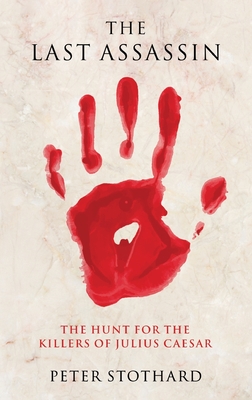
description
9Many men killed Julius Caesar. Only one man was determined to kill the killers. From the spring of 44 BC through one of the most dramatic and influential periods in history, Caesar's adopted son, Octavian, the future Emperor Augustus, exacted vengeance on the assassins of the Ides of March, not only on Brutus and Cassius, immortalized by Shakespeare, but all the others too, each with his own individual story. The last assassin left alive was one of the lesser-known: Cassius Parmensis was a poet and sailor who chose every side in the dying Republic's civil wars except the winning one, a playwright whose work was said to have been stolen and published by the man sent to kill him. Parmensis was in the back row of the plotters, many of them Caesar's friends, who killed for reasons of the highest political principles and lowest personal piques. For fourteen years he was the most successful at evading his hunters but has been barely a historical foot note--until now. The Last Assassin dazzlingly charts an epic turn of history through the eyes of an unheralded man. It is a history of a hunt that an emperor wanted to hide, of torture and terror, politics and poetry, of ideas and their consequences, a gripping story of fear, revenge, and survival.
member goods
No member items were found under this heading.
Return Policy
All sales are final
Shipping
No special shipping considerations available.
Shipping fees determined at checkout.







